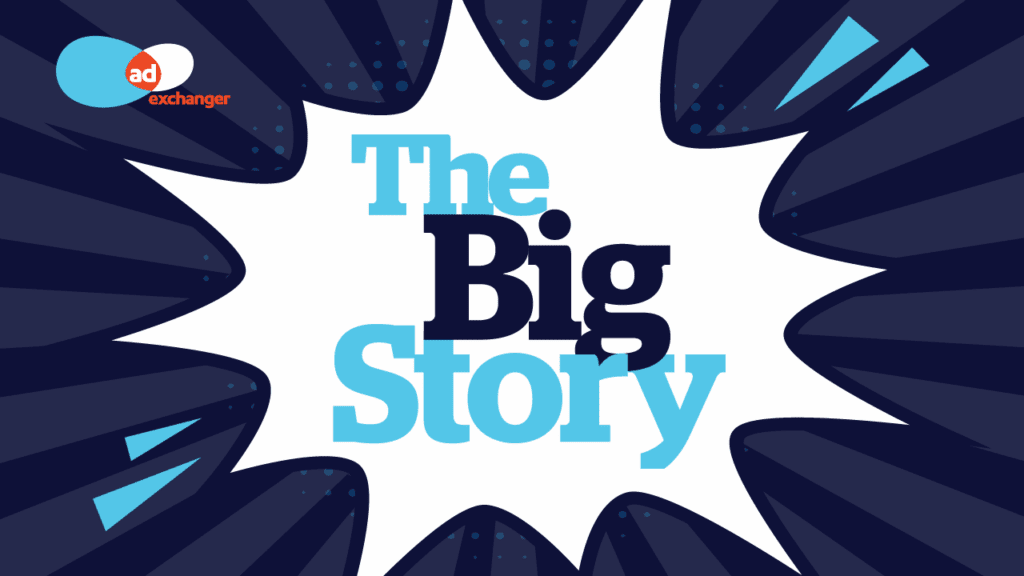On Jan. 23, 2003, PROMO magazine invited to its offices in New York City four of the brightest thinkers and sharpest observers now working in promotional marketing. For three and a half hours, PROMO Editorial Director Kathleen Joyce and Senior Editor Betsy Spethmann refereed their discussion of challenges in the current marketing climate and speculation on the opportunities that lie ahead. Here are some highlights from that meeting.
ROB COLANGELO President of Colangelo Synergy Marketing, Darien, CT. Campaign that got him excited: Tang. “It had gone to the moon and never came back.” But Kraft Foods wanted to give it a last chance before shuttering the brand. “It was a great example of [ad and promotion] agencies working together. We basically found that ‘tweens’ were the perfect target for this because of all the bad things that Mom didn’t love.” Sales increased 60% in the first six national markets. Five years later, it is still alive and well in the Kraft portfolio, having gotten huge results.
PAM KAUFMAN A 10-year veteran of kid’s entertainment, Kaufman has been senior VP of marketing for Nickelodeon for six years, operating from its New York City offices; she’s also earned the distinction of being named PROMO’s Marketer of the Year — twice. Introduction to promotions: Launched Burger King’s response to the McDonald’s Happy Meal with a toy premium featuring a then-unknown property called The Simpsons. “I went home and watched them on ‘The Tracy Ullman Show,’ and said ‘Wow, these guys are funny.’ At the time, I had no idea what we were in on.”
RICH NEWMAN President of New York operations for 141 Worldwide, formerly from advertising agency Ammirati & Puris. Promotion that lit the light bulb for him: Campaign for Crisco using singer Loretta Lynn as a spokesperson, leveraging her homespun image to sell home cooking and other traditional values. “I learned that when you a create a brand, you create a reason your client can justify charging a dollar more per pound for the exact same product — because the consumer associates it with certain values or attributes that a great promotion is part of providing.”
BERNIE TRUEBLOOD A self-confessed contrarian, Trueblood is a longtime friend of PROMO and sometime columnist for the magazine. Trueblood began his first promotion agency 25 years ago, and now maintains a consulting practice in Fairfield, CT. Favorite promotion (that he didn’t originate): The Pillsbury Bake-Off. “It proved that promotion is a long-term proposition, and it’s all about branding.” Next favorite promotion (he did originate): Spring Break for Budweiser, bringing the “experience” back to the 90 percent of college kids who didn’t head south each March.
TRUEBLOOD I started a promotion agency about 25 years ago, and it’s been nothing but fun. This is a great business to be in. So much so that we’ve created a world of amateur marketers. When I got started, marketers had secrets, we knew stuff. Now, everyone thinks they are a promoter. Is the magic gone? No, there’s new magic every day.
The place to see it is on eBay — there are three million marketers out there, taking pictures, learning how to write headlines and promote stuff. Some of it’s great. But guess what? There’s also a lot of shitty promotion out there. Fortunately, it’s not being done by bigger companies, but the smaller ones.
KAUFMAN Can I say something in terms of respectability? When I started out at Beaumont Bennett it was definitely the stepchild of Grey Advertising, and the advertising people so looked down their noses at the promotion people. Now, I think the most fun is in the promotions world. Promotions has way more credibility now than when I started.
I handle advertising and marketing on one hand, and promotions on the other. At Nickelodeon, promotion exists to provide added value for our advertisers, so they want to spend more money. The point I’m making is that it’s the promotions side of our business that really builds our brand and that generates more money for our clients, by far.
NEWMAN Isn’t it in fact the melding of those disciplines that drives the brand? Everything that touches the consumer creates a positive or negative perception about a brand, regardless of whether it has a specific mechanism to build business, an incentive of some sort, that is what has fundamentally changed.
Having worked on both agency sides [promotion and advertising], I know that advertising stills looks down its nose at promotion — but far less so because, in reality, ad agencies know that the clients are not looking down their noses.
KAUFMAN And the budgets are the same!
NEWMAN Advertising budgets have dissipated and promotion budgets have become more critical. The ability to actually talk to consumers has changed dramatically. Thirty years ago, you put an ad on TV and watched the sales roll in. Well, that’s gone.
SPETHMANN Is it that ad budgets have been funneled into promotion?
NEWMAN I think everyone is far too obsessed with who took whose money. That’s not the issue. The issue is, how do you build the client’s business? You built it with X number of marketing dollars, and how you deploy those dollars becomes the responsibility of the people who can best market brands. That’s the role agencies need to provide — not just do ads, but meet objectives.
COLANGELO I agree with that. Two campaigns I’ve worked on come to mind, where success was contingent on agencies working well together — campaigns where promotion, advertising and p.r. came together and shared the same spot at the table. Kraft had a very strong brand manager for Tang, who forced the ad agency to work with us on that re-launch five years ago, even though the agency was territorial.
KAUFMAN Ad agencies rarely lead the charge.
COLANGELO True, and this year, for the Guinness campaign [for Diageo], we’re driving the process. We have six agencies involved: media, promotion, marketing, interactive, p.r. and advertising. All of us sit around the table developing concepts together — but our role is to drive that. I believe that’s the way you have to go now in order to give the consumer as many touch points as possible.
The switch from above the line [advertising] to below the line [promotion] isn’t obvious. A lot of that budget is going to trade.
KAUFMAN Trade, online, point-of-sale, print…we try to get all of it. The budgets have gotten more creative.
COLANGELO I’m always careful to ask how much of it is going to the retailer, because that falls to our below-the-line budget.
SPETHMANN Which obviously is a bigger issue with packaged goods companies, and less of an issue in other categories. That’s what led to the genesis of co-marketing ten years ago — companies wanted promotion money not just to go to the retailer’s pocket, but do something for the brand. Has that helped brand leverage more?
NEWMAN The ultimate question is the pricing issue for a brand in a particular marketplace. Money fueled to retailers or distributors is really just a way of getting better distribution, better P-O-S material, better pricing. The tools change, but the fundamental issue is the same.
What is the issue from the consumer’s standpoint? Agencies have an opportunity to be consumer-centric, and help clients build their business with consumers.
COLANGELO Pam brought up a good point — media fragmentation is going to be an ongoing challenge for agencies that have to ask where marketing dollars are going and how they are getting there — even if they are going to the consumer. How do you evolve to make sure you get your fair share? That’s why agencies are constantly evolving. They are trying to do everything.
SPETHMANN Have you ever turned down business because it wasn’t a good fit?
COLANGELO Actually, we have. We were asked to do some very high-end sales consulting — a $1 million piece of business. We ended up referring it down the street.
TRUEBLOOD What street was that!?
COLANGELO But it solidified my client relationship so strongly. We do integrated marketing, but you have to know where to draw the line. I’m not going to damage an $8 million account for a $1 million opportunity.
Let’s be honest: We’re in a business that’s about 25 years old, and in the early days, integrity was questionable because of the ease of entry. Anyone could hang a shingle out during the first 10 years or so. Obviously, there’s been a tremendous turnaround.
TRUEBLOOD You’re right, respect for the industry has increased. That’s due in part to the way its role has evolved. We used to say promotion was a short-term incentive to change behavior….
SPETHMANN You would know, Bernie, you wrote the primer.
TRUEBLOOD We didn’t have many media a few years ago — FSIs and point-of-sale. Now we are harnessing the Babel of alternative media, and what has come out of that difficult task has been the specialized promotion agencies, for event marketing, interactive, etc.
Now agencies seem to have processes, systems, proprietary research techniques, channel relationships — things that draw them to the client. If you are an agency that can prove you have a relationship with Wal-Mart, you are in a very strong position.
SPETHMANN An understanding of retail relationships has always been the strength of promotion. And that’s what’s helping promotion professionals now. Manufacturers understand that they need to work through and with retailers, and promotion guys know how to do that.
KAUFMAN If we at Nickelodeon let the media buyers — who are all about the demographics — dictate marketing, we would never have Ford advertising $32,000 vehicles to six- to 11-year-olds, we would never have the Bahamas advertising $10,000 vacations, we wouldn’t have Embassy Suites, Gateway Computers and on and on. It is promotion that has made Nickelodeon the most profitable cable network.
Our challenge is to turn our audience into buyers — and keep the brand alive. Marketers want to get to consumers while they are young, and they know that kids are making buying decisions.
We want to help our clients reach them on-air, through our magazine — at all the touch points.
JOYCE So if the value of promotion is recognized by CMOs and everyone operating below them, do CEOs get it? If not, whose job is it to get that message across to them?
TRUEBLOOD There are no CEOs I can think of who get it. For the most part, maybe because they are put off by the complexity of promotion, they don’t pay attention to the lifeblood of their brand marketing.
NEWMAN We may be looking at this through the wrong end of the telescope. It’s not if promotions are important or not — it’s what builds the brand, and it has to be from a consumer’s perspective. We have an audience, and its relationship to certain categories is critical to the purchase decision. Therefore, we want to leverage that relationship through various vehicles.
The work isn’t to convince CEOs that promotions are important — it’s to convince them that being consumer-centric is critical. And if you are consumer-centric, you have to care about promotions.
In reality, promotions has evolved enormously from “What can I give the consumer to get them to buy this product tomorrow?” to “What can I give them that also has something to do with the brand?”
KAUFMAN That is an awesome statement. Recently, we began working with Proctor & Gamble, which is a packaged goods company that gets that. They never before spent money on Nickelodeon, but Crest and Pampers wanted to partner with Dora the Explorer, the first Latina main character on television. She appeals to kids, to moms, and the Hispanic demo. We’re putting out a live tour with brands that I could only have dreamed about two years ago. They’re also spending money on Nick Jr., and the directive came from P&G’s CEO. P&G is supporting these brands at retail with Dora as the headline.
NEWMAN It depends on who the CEO is and what kind of company it is. I’ll tell you, we have clients who are incredibly marketing-centric, and others who believe that it may be important, but not necessarily what will make them successful. Financial service companies, for example, very often will tell you that rate of sales is more critical than advertising.
JOYCE Does part of that attitude stem from the mindset of those amateur marketers Bernie mentioned earlier?
TRUEBLOOD I’m glad you brought that back up. Marketing has percolated up; everyone is doing it, and yes, CEOs are more conscious of it. But training is probably one of the biggest issues we face. Not only how we do it, but what we believe and why branding is important.
COLANGELO Absolutely.
TRUEBLOOD There are a few schools and a few textbooks that include promotion in the curriculum. But I don’t think, with today’s tight budgets, there’s enough training going on at corporate marketing departments. And I’ll betcha Rob will bear me out that there’s not enough training going on at his organization [agency], because it’s a below-the-line cost.
COLANGELO It’s a very interesting point. In the time I’ve been in the industry, I’ve witnessed flagship companies, which had been known for their stellar training, neglect it or outsource it. And when budgets get cut, that’s often the first thing to go.
We’re very conscious of the need to educate our staff. We train trainers, because we’re teaching what we preach.
But if anything is going to bring this industry down it will be an inability to pass along the knowledge — both on the client and the agency side.
KAUFMAN Mentoring has to be part of the culture. At Viacom [parent of Nickelodeon], it’s mandated. Part of my compensation hinges on mentoring others.
NEWMAN Rob, I’m going to disagree with you slightly. Promotion has evolved so far from the days of pushing gimcracks; now we train people to understand a client’s business. You run a very successful company and talk about training as a priority — and that is a hallmark of how this industry has changed. When people in this industry talk like that, it creates a situation where a client wants to hear what you have to say. That’s when a CEO will say “Call up Rob,” or “See what Bernie has to say about it.” We want to be a critical component in the CEO’s toolbox for building the business.
SPETHMANN Promotion professionals can talk at a better level than the people from the advertising side or consulting, because promotion understands the retail side of the equation, and what’s going on in the street.
JOYCE That goes to Pam’s earlier point.
KAUFMAN Yeah, for us it’s all about what is most exciting to a kid. It’s all about the brand and the consumer.
COLANGELO I find it interesting, looking back on my years in the business, to watch the pendulum swing. It used to be the manufacturer was king, and now it’s all about retail. The growth of Wal-Mart is one of the top three factors impacting promotion today.
Marketers have had to become more intelligent in how they work with their retail partners (“partners” is something of an exaggeration).
TRUEBLOOD To get back to the training problem, I’m amazed when I visit both agency and corporate brand departments at how few people “know retail,” that understand channel marketing and category management. It’s not that they don’t want to, it’s a question of time and resources to learn.
SPETHMANN Promotion has always been about moving the sales needle over. While I’ve been very excited to see it become integral to building the brand, it now seems like it’s even more about brand awareness and less about sales, and that worries me. Could you address that?
TRUEBLOOD We like to be strategists and branders; it’s more esoteric, and we hold our heads a bit higher when we tell people what we do all day, but it’s all about sales.
COLANGELO Betsy, your question raises a challenge we face every day, both on the client and agency side: the struggle between long-term brand equity building vs. short-term sales. We have some sales forces, for Kraft, for example, as clients, and it’s an eye opener. Sales guys and the brand managers who are new in a division only care about making their numbers for the quarter. Sometimes because of pressure from a retailer, they may make a choice that has a long-term negative impact — but the brand manager feels he has no choice.
Finding the balance between those two points is a challenge unique to promotion professionals.
SPETHMANN I wonder if the current focus on ROI will bridge that? If marketers are open to a discussion of return, will they focus beyond the short-term?
NEWMAN The issue is accountability, by both the client and the agency. What is the goal, and how is it measured? Then you can assess the tradeoffs.
TRUEBLOOD All of a sudden, marketers are studying shoppers, not consumers, so they can bring value to the retailers. Frankly, there’s not a brand in a store right now that a retailer doesn’t believe he could do without — unless it makes a positive change in shopping behavior. There’s a whole sub-industry of shopper research now.
NEWMAN The way I see it, it’s important to understand consumers at all the points where they touch your brand, including when and where they shop for it. There are clearly channels that have far greater numbers of the people we want to talk to, and where they are more likely to buy. It’s not 7-Eleven vs. Target, it may be a convenience issue. It’s bringing consumer knowledge to channel marketing.
JOYCE Where does that consumer knowledge need to reside?
TRUEBLOOD I would say the brand management, but I know of agencies that have made that investment.
NEWMAN But are clients structured properly, in other words consumer-centrically, to do that?
COLANGELO The better brand managers are. But agencies now find it is incumbent on them to provide that added value. As an independent, we don’t have sister agencies, so we need to maintain alliances with folks who can provide the kind of research Bernie is talking about, so we can tap into that and get the answers.
NEWMAN This is a business built on the power of the group, the power of people to bring ideas to the table and make them better.
COLANGELO And that’s true here. Sessions like this are incredibly helpful. It’s so helpful to hear all your perspectives and yet find out that a lot of the issues that I deal with aren’t so different from the ones you face.
KAUFMAN We have to thank Betsy and Kathleen for this therapy session! (general laughter).
Watch for more roundtable discussions with PROMO editors in upcoming issues.







